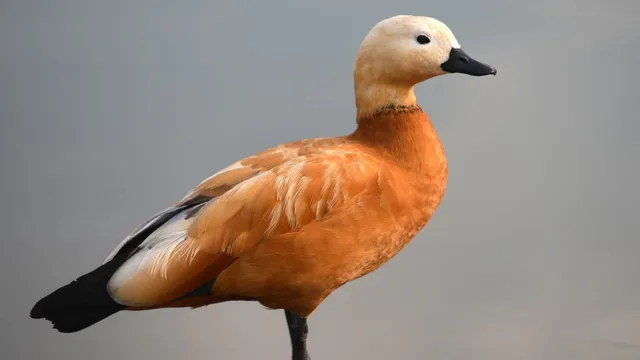
Donald Trump Jr. faces allegations of illegal hunting of rare ducks in Italy
2025-02-04 23:28- Donald Trump Jr. participated in a duck hunting trip in the wetlands near Venice, Italy, in December 2024.
- He has been accused of hunting a protected species, the ruddy shelduck, sparking inquiries from Italian lawmakers.
- The situation raises significant concerns regarding wildlife protection laws and ethical hunting practices.
Express your sentiment!
Insights
In December 2024, Donald Trump Jr. reportedly participated in a duck hunting expedition in the wetlands near Venice, Italy. The area is part of the Valle Pierimpie, which borders the Venice Lagoon and is a designated Natura 2000 conservation zone. Italian lawmaker Andrea Zanoni of the Europa Verde party cited a video from the hunting trip that allegedly shows Trump Jr. alongside a dead ruddy shelduck, a protected species under both European Union and Italian wildlife laws. The killing or possession of such wildlife is regarded as illegal in the region. Following the release of the video, which was made available on the Field Ethos website, there has been significant public outcry. Zanoni filed a parliamentary question aimed at initiating an investigation into the incident. He and fellow lawmaker Luana Zanella also urged both regional and national authorities to take decisive action regarding the hunting party's activities and the potential breach of environmental laws. They highlighted the importance of adhering to wildlife protection laws in Italy, especially concerning rare and endangered species. The response from the Trump camp was immediate, with spokesman Andy Surabian asserting that the hunting party had obtained the necessary permits and was operating within legal guidelines. He emphasized that Trump Jr. is serious about following rules and regulations regarding conservation and would cooperate fully with any inquiries. Despite the assertion of legality, the controversy surrounding the footage and the alleged actions of the hunting group has raised questions about ethical hunting practices and the accountability of individuals engaged in such activities. As the investigation unfolds, it remains to be seen what actions, if any, regional authorities in Italy will take. Environment Minister Gilberto Pichetto Fratin indicated that he was waiting for a formal report regarding the claims after being made aware of the situation through news outlets. This incident could potentially have broader implications, not just for Trump Jr. personally but also for hunting regulations and wildlife conservation efforts within Europe. The combined nature of the allegations and the high profile of those involved has ensured significant media coverage and public scrutiny.
Contexts
In Italy, the hunting of protected species is governed by strict regulations that are designed to preserve biodiversity and ensure the conservation of wildlife. The country is a signatory to various international treaties and conventions, such as the Bern Convention and the EU Birds Directive, which set forth guidelines to protect specific species that are considered at risk or endangered. Additionally, the Italian Wildlife Act is the primary national legislation that regulates hunting activities and outlines the list of species that are legally protected from hunting. This framework emphasizes Italy's commitment to maintaining its rich natural heritage and biodiversity. Protected species in Italy include a variety of birds, mammals, amphibians, and reptiles. The law categorizes certain animals as strictly protected, meaning that hunting them is entirely prohibited. Some examples of these include the Italian Wolf, the Golden Eagle, and various species of bats. Importantly, the Italian government periodically reviews and updates the list of protected species based on scientific assessments and conservation needs. This adaptive management approach allows for effective responses to changes in ecological conditions and threats to wildlife populations. Notably, the penalties for illegal hunting of protected species in Italy are severe. Offenders may face heavy fines, confiscation of hunting equipment, and even imprisonment in severe cases. Enforcement agencies, including the Carabinieri Forestali, work vigilantly to monitor hunting practices and ensure compliance with regulations. Moreover, public awareness campaigns and educational programs are in place to inform citizens and hunters about the importance of wildlife conservation and the legal implications of hunting protected species. This multi-faceted approach reinforces the significance of respecting wildlife laws and promotes a culture of conservation throughout the country. In summary, the laws regarding hunting protected species in Italy are designed to safeguard the country's unique flora and fauna while fostering a sustainable hunting culture. By adhering to national and international regulations, Italy works to balance human interests with ecological preservation. Ongoing efforts to enforce hunting laws and provide education are critical to ensuring the longevity of protected species and maintaining the biodiversity that is essential to the health of the environment.